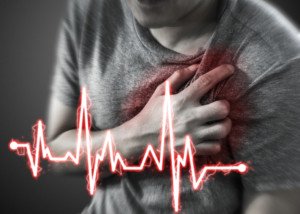
What features of chest pain from a heart attack would not be felt from anemia?
A person may also have symptoms days before the actual heart attack.
We all know that a heart attack often (but not always!) causes chest pain.
However, many conditions cause chest pain, including chronic congestive heart failure, arrhythmia, inflamed rib cartilage, acid reflux, muscle spasms, cancer and a blood clot in the lung.
Heart Attack Chest Pain vs. Anemia Chest Pain
“Anemia, in itself, is not a cause of chest pain,” says Morton Tavel, MD, Clinical Professor Emeritus of Medicine, Indiana University School of Medicine, and author of “HEALTH TIPS, MYTHS, AND TRICKS: A Physician’s Advice.”
“Most commonly, anemia causes a sense of fatigue in the effort to perform work, with reduced effort tolerance that is usually combined with shortness of breath at low workloads,” explains Dr. Tavel.
“On the other hand, in the presence of coronary artery disease (partial or complete obstruction of cardiac blood supply), when combined with anemia, even minor effort may cause chest pain originating in the heart, often called angina pectoris.
“This latter type of chest pain is usually described as a chest ‘tightness’ or ‘pressure’ that may also be felt in the neck or arms.
“It is transient, often mild, typically occurs with exertion and disappears rapidly when exertion is terminated. These characteristics are the same, even in the absence of anemia.
“By contrast, chest pain resulting from a myocardial infarction (MI) or heart attack is usually severe, ‘crushing’ in description, often accompanied by nausea and sweating, and does not abate with inactivity. In this latter instance, there is usually no direct correlation with anemia.”
The keyword is “usually.” Keep in mind that there is a such thing as a “silent” heart attack, one that produces no or vague symptoms.
There is also the atypical heart attack, in which the symptoms don’t follow the usual template.
For instance, the patient may experience pain only in the back, or only shortness of breath and vomiting.
Both anemia and severe coronary artery disease cause fatigue and weakness.
These symptoms will be much more noticeable in an active person. The active person, over time, will notice the declining energy levels.
On the other hand, a couch potato won’t notice as easily the initial decline in energy, being that they don’t do anything that requires much energy.
New-onset chest pain and/or fatigue or other concerning symptoms should never be ignored.
Your problem may be strictly heart related or it may be anemia, or both.
If you think you “only” have anemia, you still better see your doctor, as anemia can have serious causes including cancer.



























